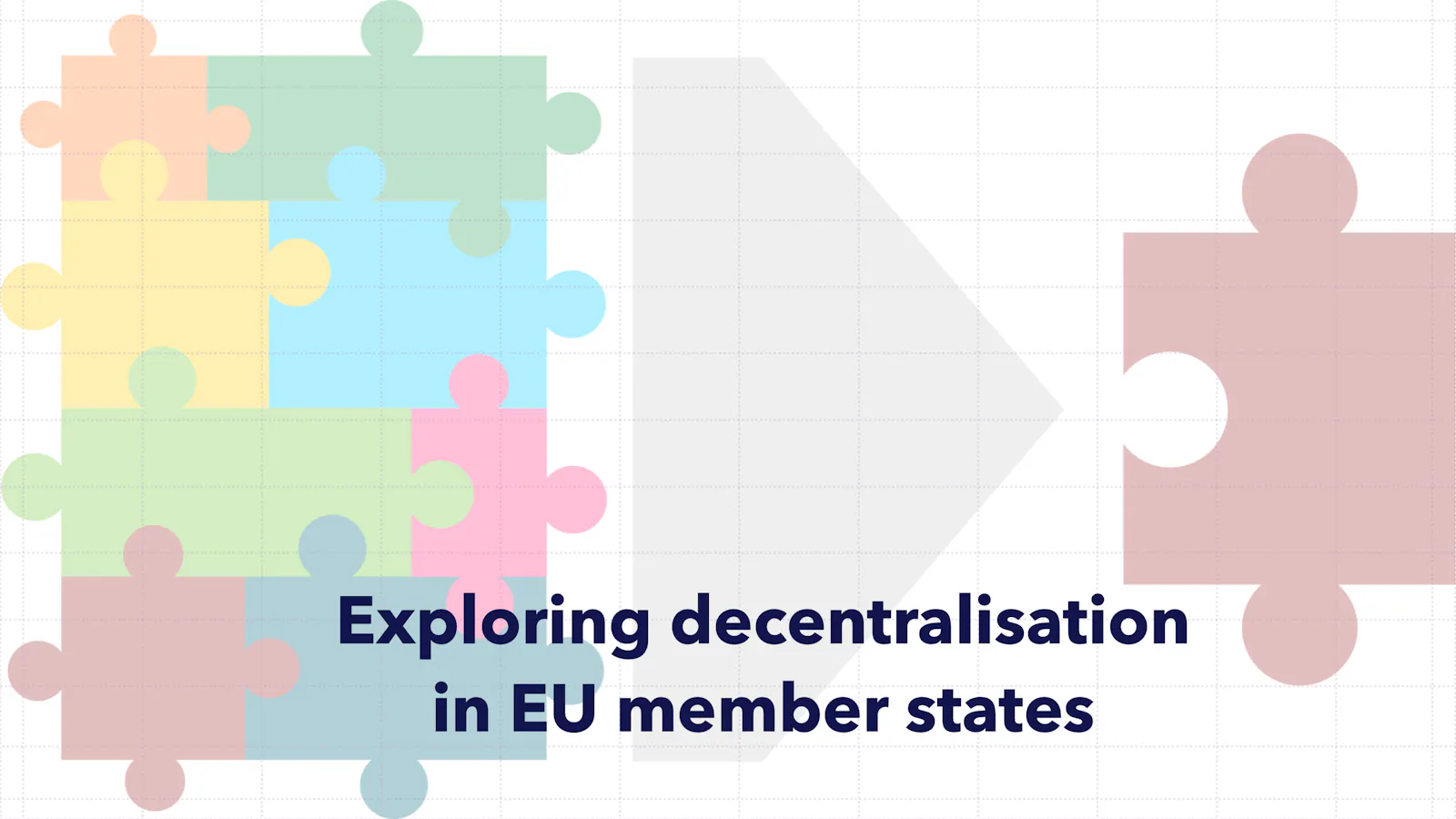Exploring decentralisation in EU member states
September 2023

The role of subnational governments and administrations – i.e. the degree of decentralisation – differs widely across EU member states. In general, effective decentralisation can contribute to GDP growth and better governance considering citizen needs. However, for this a number of preconditions need to be fulfilled. This can be a tricky issue.
Decoding the realm of decentralisation
For this reason, the OECD has developed a number of guidelines for effective decentralisation:
Clarify the responsibilities assigned to different government levels
Ensure that all responsibilities are sufficiently funded
Strengthen subnational fiscal autonomy to enhance accountability
Support subnational capacity building
Build adequate coordination mechanisms among levels of government
Support cross-jurisdictional cooperation
Strengthen innovative and experimental governance, and promote citizen engagement
Allow for and make the most of asymmetric decentralisation arrangements
Consistently improve transparency, enhance data collection and strengthen performance monitoring
Strengthen national regional development policies and equalisation systems
At European level, the European Committee of the Regions (CoR) has developed a portal on the division of power and the decentralisation index (Abre numa nova janela). Based on a set of decentralisation indicators it allows to monitor and compare different facets of decentralisation across EU member states. A recent CoR study (Abre numa nova janela) deepens these insights on effective decentralisation along the OECD guidelines and adds a reflection on the potentials of the European Semester in this regard.
The study sheds some light on the diversity that characterises the extent and dimensions of decentralisation across EU member states. While some countries embrace a harmoniously decentralised framework, others show imbalances across the dimensions. Furthermore, the degree to which subnational levels are equipped with the necessary resources which allow for an effective and meaningful decentralisation varies.
Capacity building for effective decentralisation
A critical facet of decentralisation's success is the capacity of subnational public authorities to manage the responsibilities transferred to them. Decentralisation comes with a need for continuous capacity building, not only in terms of knowledge and skills but also in augmenting personnel within subnational administrations. The intricate relationship between responsibilities and capacities becomes evident, revealing instances of mismatch.
To read this post you'll need to become a member. Members help us fund our work to ensure we can stick around long-term.
See our plans (Abre numa nova janela)
Já é um membro? Iniciar sessão (Abre numa nova janela)


